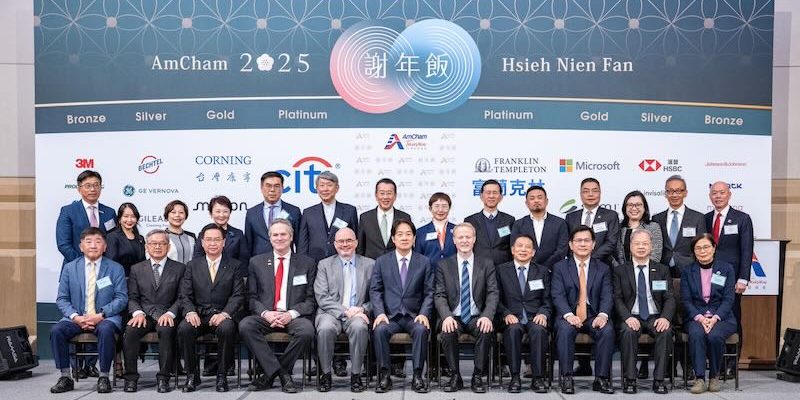
In the weeks I’ve spent back at the Chamber, I have attended many meetings in which AmCham’s 26 committees devote their time and energy to the production of our White Paper. This is one of the most ambitious projects of any industry association, taken on annually, and has been a ritual for AmCham Taiwan for more than 25 years.
Producing the White Paper takes massive effort and is a year-round project for AmCham members and staff. The cycle begins in January when members start carefully reviewing previous issues in their industry and consider how to best represent these unresolved roadblocks alongside new issues faced when doing business in Taiwan. After five to six months of deliberations, the new White Paper is presented to the Taiwan government.
Equally laboriously, when government agencies and officials receive AmCham’s White Paper, they too spend time (surely their most precious resource) determining how to best respond and, in some cases, provide relief by cutting red tape.
Both AmCham and the Taiwan government take a highly diligent approach to this process. All parties have their own concerns and perspectives, which they make sincere efforts to share with one another. Lately, though, the limited progress on the resolution of White Paper issues has reminded me of a Dr. Seuss story called The Zax, once a favorite of my son.
The story takes place in the Prairie of Prax, where there lives a North-Going Zax and a South-Going Zax. One day, they meet face-to-face. Both refuse to go anywhere other than their assigned direction, north or south, each standing in the other’s way. They plant themselves, resolved not to budge. There they stand and stand as the world progresses without them. A highway is built over them, and a city nearby while the two stubborn Zax remain unmoved in their original positions.
The moral of the story is simple. Everyone could move forward if just one of the two Zax budged.
According to AmCham’s 2023 Business Climate Survey, 88% of our members will continue to invest in Taiwan. But what about new investments? Although Taiwan-bound foreign direct investment increased in dollars last year, the number of cases decreased by more than 5% since 2021 and by a whopping 32% since 2015, when the number of cases peaked. Other than the semiconductor and offshore wind industries, new investment is trickling in at best.
There is a need to diversify Taiwan’s investment sources and encourage businesses to set up shop here. But some international money managers and decision-makers even say they don’t have Taiwan on their radar. How can we change that? What will it take to change that? If we refocus our White Paper efforts, would that resonate and give the government a more straightforward path to improving Taiwan’s attractiveness and competitiveness?
To make meaningful progress, we can and must adopt a fresh approach to our White Paper. In doing so, we need to address the fundamental issues that have been plaguing our members for years. For instance, half of our 26 committees have identified the need for increased transparency and adherence to international standards in regulations within their industries.
As talks under the U.S.-Taiwan Initiative on 21st-Century Trade framework have been advancing, the United States has put forward a proposal for a chapter on good regulatory practices. This proposal acknowledges that providing early information about planned regulatory actions enables stakeholders to engage with authorities and have more time to prepare for compliance. The 21st-Century Initiative’s spirit of embracing change and adopting regulatory transparency is clearly and broadly supported within our membership.
I firmly believe that if we find a way to see each other’s perspectives, we can also find ways to create win-win situations for industry and government. I certainly hope the government officials reading this see and appreciate our most sincere intent to improve the business environment here. I urge government officials to work with industry to make Taiwan strong for Taiwan.
And you never know – if we work hard enough, we might make a place where all Zax can happily move ahead to create greater growth and prosperity.




